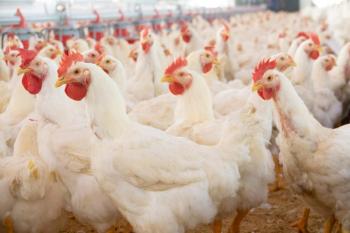
UC Davis researcher provides the latest on equine coronavirus
Once thought to occur only in foals, these viral infections in adults have been increasingly reported.
Dr. Nicola Pusterla and equine veterinary students at UC Davis. (Image courtesy of UC Davis)
Nicola Pusterla, DrMedVet, MedVet, DACVIM, recently gave an update on what is known about equine coronavirus based on research done at the University of California, Davis, in addition to a review of several case studies.
According to a release from UC Davis, Dr. Pusterla reported that most affected horses will present as anorectic (98%) and lethargic (88%) and have an elevated rectal temperature at or above 101.5 F (81%). Less commonly, horses have diarrhea (23%), colic (16%) and neurologic deficits (4%) that might manifest as aimless wandering, head pressing, recumbency or seizures.
If a horse is not exhibiting signs, that does not mean it is not infected, according to Dr. Pusterla's research. Polymerase chain reaction testing for the virus revealed that 10 to 20% of horses had detectable virus in their feces yet showed no clinical signs.
Though equine coronavirus was first noted in foals more than 20 years ago, Dr. Pusterla said an adult infection of the virus was found in 2011 in a group of draft racing hoses in Japan. The disease spread to groups of adult horses in more than 10 U.S. states from 2011 to 2014. And disease outbreaks continue to be reported across North America.
Equine coronavirus mostly spreads feco-orally, as opposed to respiratory shedding. Fortunately, the signs of disease usually only last one to four days with the help of supportive care. Plus, the mortality rate is low-only 8% of infected horses died due to complications of the virus (endotoxemia, sepsis, hyperammonemic encephalopathy) in a recent UC Davis study.
To help prevent the spread of the disease, Dr. Pusterla recommends enforcing biosecurity protocols where large groups of horses are gathered.
Newsletter
From exam room tips to practice management insights, get trusted veterinary news delivered straight to your inbox—subscribe to dvm360.






